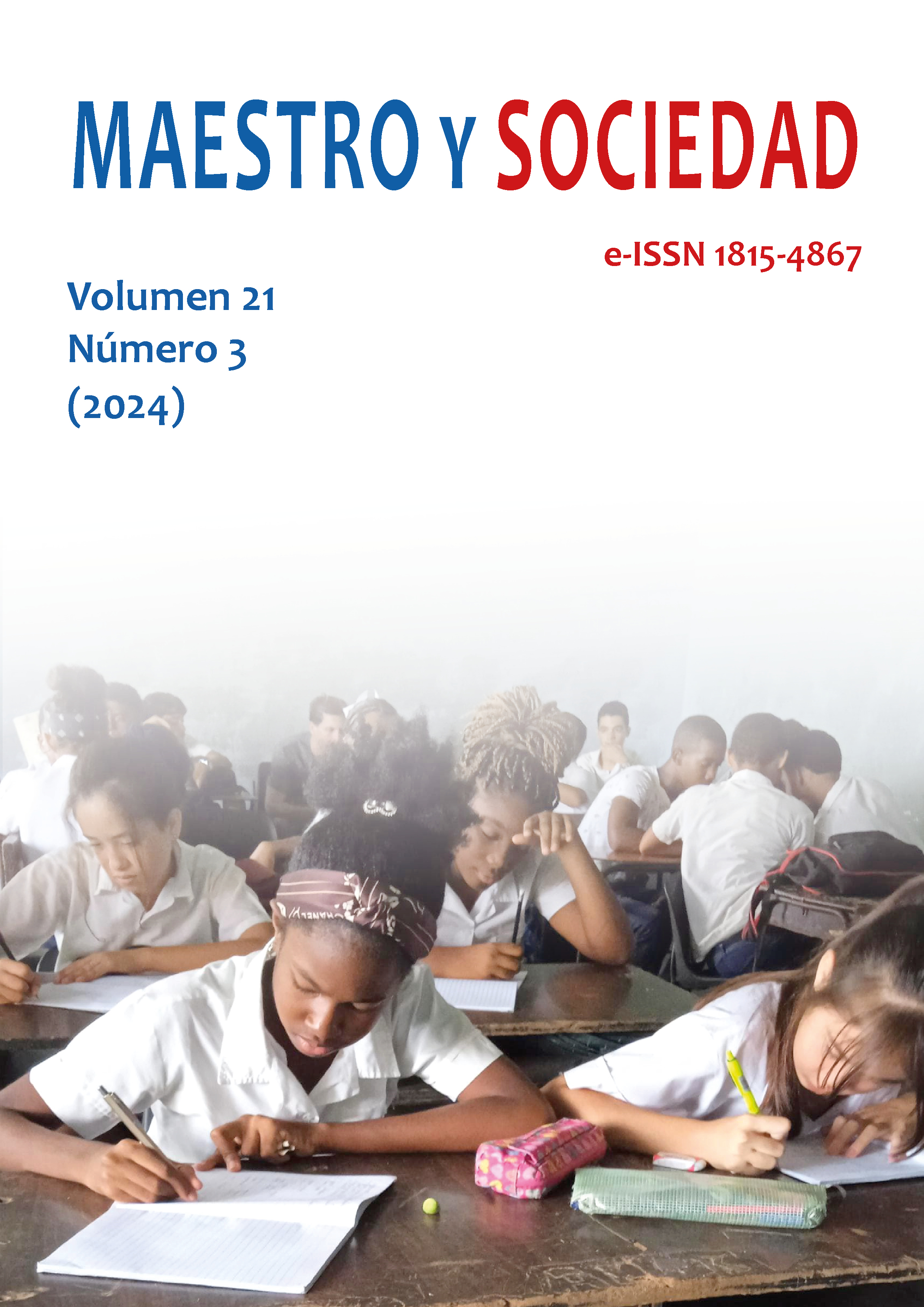The gender approach in the teaching of Law: guidelines for teachers of the Faculty of Law of the Universidad de Oriente
Keywords:
gender approach, role of the teacher, professional training, Law careerAbstract
Introduction: This article aims to address the need to prepare law professors at the Universidad de Oriente de Cuba from a gender perspective, which will allow them to assume the task assigned to the Ministries of Higher Education and Justice in the National Program for the Advancement of Women, in force since February 2021. The need to provide Cuban society not only with jurists skilled in their profession, but also with values of justice, defense of identity, equity and equality, forces us to resize our teaching practices with a gender approach. Its objective is to propose a set of guidelines in accordance with the National Program for the Advancement of Women to promote the inclusion of a gender perspective in teaching practices in the Law Degree. Materials and methods: Different qualitative methods were used in the work, such as analysis-synthesis, document review, interview and observation, which helped to establish from the interconnection of the assumed referents to the assessment of the results obtained. Results: The current limitations in the training of law students based on the guidelines established by the gender approach do not only come from the curriculum, with the incorporation of subjects directly related to the subject or the incorporation of content with a gender approach in existing ones; the correct use of language and the projection towards students have not yet been mastered; as well as the lack of use of tools that allow identifying situations of gender violence, harassment and/or discrimination. Discussion: These experiences can significantly contribute to the learning of Law and transcend professional life. This is the way to contribute to their training and to the construction of a society that respects equality. Conclusions: The University must contribute to the strengthening of society and especially the Law career must strengthen the values of justice and respect for human rights, starting with the principle of equality and non-discrimination.
References
Barrabí, N., Nuñez, M. A. & Lopez, J. (2022). El enfoque de Género: deesafio para una educación inclusiva. Santiago, 39-54.
Blanco, C., Huaita, M., Molero, M. & Salmón, E. (2019). Guia sobre enfoque de género en la enseñanza del derecho. Pontificia Universidad Católica del Perú.
Decreto Presidencial 198/2021. (20 de febrero de 2021). Programa Nacional para el Adelanto de las Mujeres. Cuba.
Gozalez, A., Rodriguez, M., & Del Valle, B. (2009). Educación con perspectiva de géneros en contextos escolares. Edición Educación cubana.
Hechavarría, P., Hernandez, A., Seot, C. & Landabe, Y. (2021). La perspectiva de género: una alternativa válida para la enseñanza de las ciencias informáticas y a fines. IV Conferencia Cientifica internacional, Universidad de Ciencias Informaticas. La Habana, Cuba.
Oregi, F. (2015). Guia para la incorporación de la perspectiva de género en el curriculum y en la actividad docente de la enseñanza del regimen especial y la formación profesional.
Pérez, A. y Betancourt, M. Z. (2019). El enfoque de género desde la formación docente y su relación con la ciencia, la tecnología y la sociedad. Revista Boletin REDIPE.
Popular, A. N. (24 de febrero de 2019). Constitución de la República de Cuba. Ed. Política.
Popular, A. N. (s.f.). Ley 156 de 2022. Código de las Familias. Editora Política.
Silva, J. L., Pérez, A., & Paez, L. (2017). El enfoque de género en las cooperativas no agropecuarias de Pinar del Rio, Cuba. UNIVERSIDAD Y SOCIEDAD. Revista cientifica de la universidad de Cienfuegos, 111-118.
Tejuca, M. (2020). Universidad y feminización: la experiencia cubana. Educacao e Pesquisa.
Unidas, N. (2015). Objetivo de desarrollo sostenible. Una oportunidad para América Latina y el Caribe. http://www.cepal.org/es/temas/agenda-2030-desrrollo-sostenible-ods
Ventura, F. (2011). El proyecto de mejora educativa. Cómo introducir el enfoque de género en asignaturas jurídicas. Sevilla.
Published
How to Cite
Issue
Section
License
Copyright (c) 2024 Darina Ortega León, Lisbet Pargas Rojas, Caridad García Rondón

This work is licensed under a Creative Commons Attribution-NonCommercial-NoDerivatives 4.0 International License.
This journal provides immediate open access to its content, based on the principle that offering the public free access to research helps a greater global exchange of knowledge. Each author is responsible for the content of each of their articles.



























 Universidad de Oriente
Universidad de Oriente 